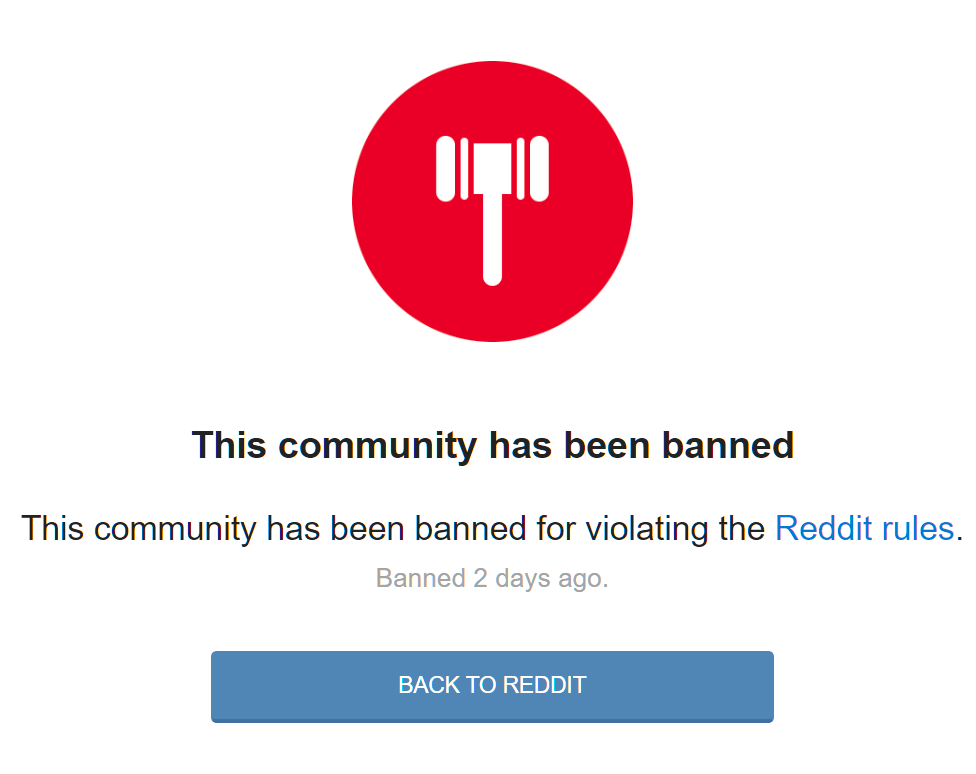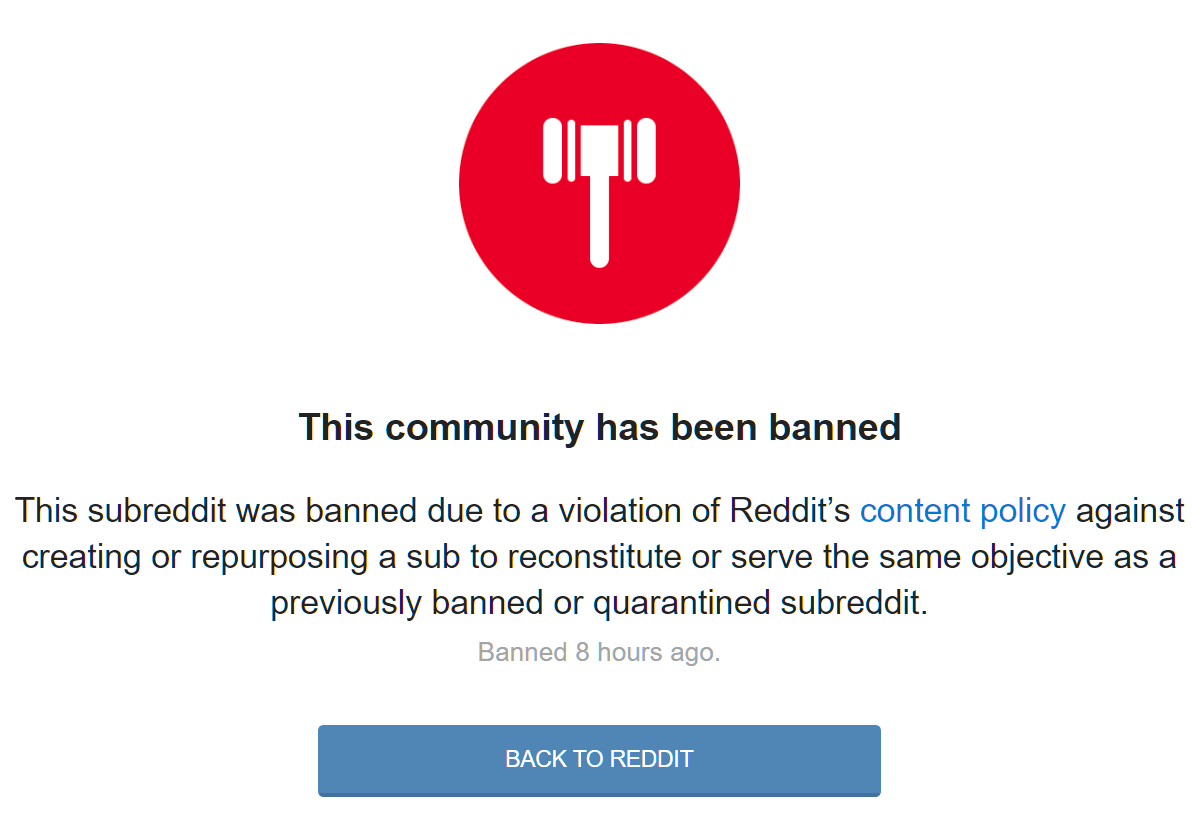While torrent-based piracy remains popular today, there is massive demand for unlicensed IPTV providers that offer thousands of live TV channels and VOD packages.
These IPTV products are available for just a few dollars, euros or pounds per month from what appears to be thousands of suppliers. The truth, however, is that while there is a bewildering range of people willing to sell customers a subscription, most of these don’t run services of their own. Instead, they act as sellers or resellers of other entities’ products.
These individuals or groups sell IPTV subscriptions all over the Internet. They are often seen on Facebook pages, Twitter, or their very own websites. Until this week, hundreds were advertising subscriptions on Reddit via the appropriately named /r/iptvresellers sub-Reddit. However, that all came crashing down when Reddit’s admins banned the group for violating the site’s rules.
Reddit wasn’t clear about the specific reasons that led it to ban the IPTV resellers’ hangout and merely pointed to the site’s rules indicating there had been a breach. However, Reddit’s ‘Content Policy’ mentions “unwelcome” content as being unsuitable for the platform and specifically mentions that “fraudulent services” are outlawed.
Some may dispute that definition in respect of pirate IPTV but as Reddit makes clear, its guidelines are there for a reason and users should “please keep in mind the spirit in which these were written, and know that looking for loopholes is a waste of time.”
One of the loopholes tested after the banning of /r/iptvresellers this week was to immediately open up a new sub-Reddit – /r/iptvresellers2. That too was quickly banned by Reddit but under a different rule, as the image below shows.
Clearly, IPTV resellers are no longer welcome on Reddit (at least openly) but how do they fit into the bigger picture and how do they operate? There are many variations and exceptions but here’s a basic analogy and overview for those still puzzled by how things work.
Manufacturer vs Retail
If someone wanted to buy a new Samsung S20, they could call up Samsung in South Korea and say “Hey, sell me a phone!” and hope for the best. A more likely scenario is that they would head off to a local electronics store advertising the product and buy one from there.
Samsung may be good at manufacturing and supplying phones in bulk to distributors but local suppliers can offer the personal service most customers require. They’re also accessible when things don’t go to plan.
In return for advertising availability of the phone from their store, stocking units, dealing with sales and advice, and the inevitable customer service issues thereafter, these retailers are rewarded with a cut of the profits. In this case, Samsung is happy for the retailer to deal with the public because they’re too busy making phones. It’s a good partnership that works for everyone. IPTV often works on a similar basis.
IPTV Resellers Are Similar to Retailers
Most IPTV resellers do not operate an IPTV service of their own so their role is similar to that of the phone retailer. While the IPTV provider worries about obtaining TV channel sources and maintaining servers to deliver the service, the reseller (retailer) can go to work finding and looking after customers.
In common with regular retailers, IPTV resellers need payments from their customers in order to pay their suppliers. Most generally they are able to charge customers whatever they like per month, three-month, six-month, or yearly period of access. The idea, of course, is to charge more than the supplier charges them in order to make a profit.
First, the Prospective Reseller Needs an IPTV Supplier
Once a prospective reseller has found an IPTV supplier prepared to offer a reseller account (some prefer to sell direct or via preferred partners), the reseller is granted access to a ‘panel’. This web interface allows the reseller to manage his or her account, including adding new subscribers and offering trials.
The panel also allows the reseller to manage their existing customers, including subscribing them to various packages or adding a new device that needs to be identified by a MAC address, for example. Perhaps most importantly, it allows the reseller to buy ‘credits’ from their supplier.
IPTV Resellers Buy ‘Credits’ and Convert These Into Subscriptions
Becoming an IPTV reseller requires some kind of investment and no one is going anywhere without buying some ‘credits’ first. These virtual tokens are sold by IPTV services to resellers in bulk, let’s say 50 at a time at $5 each for the sake of argument and round numbers. Each credit usually buys one month’s worth of access so, for an investment of $250, the reseller now has 50 months of subscriptions to sell.
As an example, when new customer ‘A’ appears and agrees to buy a three-month subscription for $30, three of the reseller’s available 50 credits are spent on that transaction, costing him $15 and leaving $15 in gross profit. This process can be repeated for additional new customers or when existing customers want to extend their subscriptions. When the reseller’s available credits reduce to a low level, the reseller simply buys some more from his or her supplier.
Reselling Sounds Simple But It’s a Still a Business With Risks
The above provides only the most basic overview of how resellers can operate and massively oversimplifies the business itself. In common with a retailer selling consumer goods to the public, there are big decisions to make.
Should the reseller pile subscriptions high and sell them cheaply via Reddit Discord? Or would it be better to have a glossy website that aims to portray the service as the best in the world and therefore worth double or triple the money? There are arguments for both but each has its pitfalls.
Having thousands of subscribers and making a smaller amount on each is fine in theory but when a large proportion of those customers demand high-levels of service, that has time implications for the reseller who could end up a busy fool. Equally, running a slick website supported by a marketing operation to build faith in a cool brand means additional costs, which obviously eats into profits.
And, of course, there’s always the chance that the IPTV supplier gets taken out by the authorities. That could mean lost credits, hundreds of angry customers, and a reselling business in tatters.










